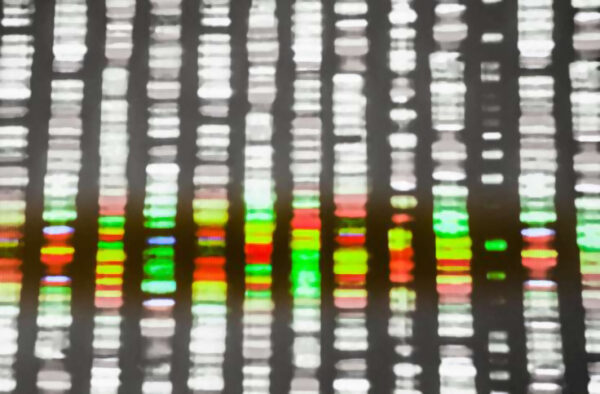Genomic Testing
Biomarker Testing for Cancer Treatment in Alabama | Genomic Testing
Genomic Testing (Of The Tumor)

Genomic testing examines your DNA to show the chemical makeup of your body. Genomic tests look at all of your genes where genetic testing is designed specifically to detect a single gene mutation.
Genomic testing of a tumor is different than genetic testing for a hereditary cancer syndrome.
Genomic testing of a tumor includes a biopsy of the tumor; then all of the cancer cells are removed and their DNA will be arranged and tracked in the lab. The equipment used for genomic testing is extremely sophisticated and it profiles the DNA to detect the abnormalities of the tumor.
All cancers arise due to changes (e.g. mutations) in a cell’s DNA. But, thankfully, NOT all cancers are hereditary. Typically genetic changes found in the tumor happened sporadically and are isolated to the tumor and not a part of the person’s genetic “makeup”. Tumor-specific mutations cannot be passed on to children. However, genomic testing of the tumor may be help determine available treatment options.
Genomic tumor testing exposes the DNA changes that are driving the growth of a cancer. The goal of this testing is to provide more targeted cancer treatments based on the tumor’s specific genomic profile. As the medical and scientific community understand more about these tumor genomic alterations, we are better able to explore targeted therapies, specific to unique mutations revealed in the tumor. Your oncologist will help determine if you are a good candidate for genomic testing.
Types of Genomic Testing for Certain Cancers
- Genomic testing for prostate cancer is done to determine how the prostate cancer may behave. It will help determine if the cancer is slow to progress or if it is aggressive
- Genomic testing for breast cancer is to determine which form of breast cancer you have because there are many genes associated with breast cancer
- Genomic testing for lung cancer is used to look for changes in the DNA of the tumor cells which can include mutations, additions, deletions, or rearrangements of the DNA.
Genomic testing can help determine if any type of cancer is metastatic, which means if the cancer has spread, and can cost anywhere from $300 to $3,000 or more depending on the type and degree of the test being performed. The following companies complete genomic testing:
- Oxford Naopore Technology
- Bayer
- Orig3n
- Guardant Health
- Veracyte
- Nutrigenomics Testing
- Invitae Pharmacogenomics
